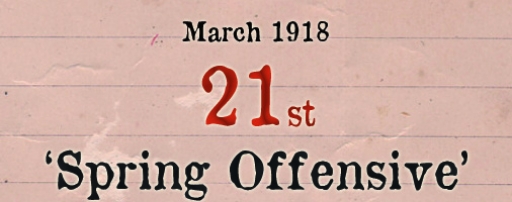The German ‘Spring Offensive’ or ‘Operation Michael’ saw the German Army make significant gains on the Western Front, before the advance was halted.
The failure of the German Spring Offensive is often as seen as ‘the beginning of the end’ of the First World War.
With Russia having withdrawn from the war with the Treaty of Brest-Litovsk, Germany was free to transfer resources and men to meet the Allied threat in the West.
Germany was no longer facing a war on two fronts.
The offensive was also motivated by the impending arrival of American men and resources to the Western Front. German commanders realised they needed to deliver a decisive blow to British and French forces before the Americans could reinforce them.
Although the Germans made the greatest advances either side had managed since 1914 with the Spring Offensive, momentum behind the attack slowed.
A lack of clear German strategic objectives and the inability of supply lines to keep up with the military advance contributed to the failure of the offensive.
The Spring Offensive stretched German manpower, resources and morale to breaking point, to such an extent that it was impossible for Germany to continue the war as an aggressor, after the offensive ground to a halt.
Posted by: Daniel Barry, Centenary News
